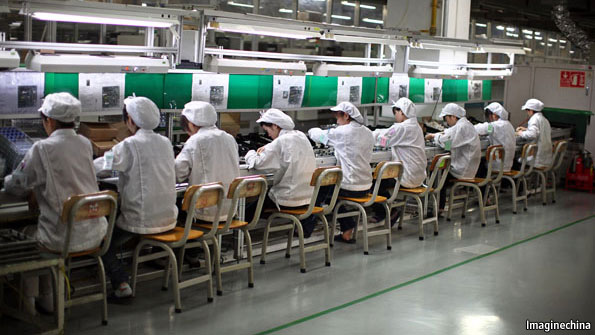While Apple has been actively seeking to improve the working conditions for employees at the Chinese factories manufacturing its products, a former executive for the Cupertino company believes it could do more. The trouble is, Apple’s infamous secrecy is getting in the way.
“We’re trying really hard to make things better,
The New York Times has published a lengthy follow-up to last week’s profile on Apple’s manufacturing operations in China. The piece is based on a number of interviews with current and former Apple executives and contractors, in addition to “economists, manufacturing experts, international trade specialists, technology analysts, academic researchers, employees at Apple’s suppliers, competitors and corporate partners, and government officials.”
While the report acknowledges that Apple has “made significant strides in improving factories in recent years,” it also highlights that fact that many of the company’s strict policies and procedures are restricting its progress. One former Apple executive claims that the company wants to improve the working conditions within factories, but “that dedication falters when it conflicts with crucial supplier relationships or the fast delivery of new products.”
Another explains that while the current system “may not be pretty,” customers like you and I want new products delivered every year, and that a radical overhaul to factory conditions would slow innovation:
“We’ve known about labor abuses in some factories for four years, and they’re still going on,” said one former Apple executive who, like others, spoke on the condition of anonymity because of confidentiality agreements. “Why? Because the system works for us. Suppliers would change everything tomorrow if Apple told them they didn’t have another choice.”
But Apple certainly isn’t ignoring the issue. The company has implemented strict codes of conduct for its suppliers, and it uses a “vigorous auditing campaign” to ensure that abuses to that code are discovered, and that they are corrected. But is it working? More than half of the suppliers audited have reportedly violated at least one aspect of the code every year since 2007, and “troubling patterns persist.”
Last year, the company conducted 229 audits. There were slight improvements in some categories and the detected rate of core violations declined. However, within 93 facilities, at least half of workers exceeded the 60-hours-a-week work limit. At a similar number, employees worked more than six days a week. There were incidents of discrimination, improper safety precautions, failure to pay required overtime rates and other violations. That year, four employees were killed and 77 injured in workplace explosions.
Despite its strict code, a former executive says Apple tolerated noncompliance, as long as suppliers promised to try harder next time. “If you see the same pattern of problems, year after year, that means the company’s ignoring the issue rather than solving it,” he said. “Noncompliance is tolerated, as long as the suppliers promise to try harder next time. If we meant business, core violations would disappear.”
A former Foxconn employee who worked in management until April when he was dismissed says that Apple is not interested in worker’s welfare:
“Apple never cared about anything other than increasing product quality and decreasing production cost,” said Li Mingqi… “Workers’
welfare has nothing to do with their interests.”
But Apple maintains that it is tough on suppliers. Earlier this month the company released its annual supplier responsibility report, and highlighted its zero-tolerance policy for underage labor is “the toughest in the electronics industry.” It has also announced that it has become the first technology company to join the Fair Labor Association, which will “independently assess facilities in Apple’s supply chain and report detailed findings on the FLA website.”
The NYT’s report concludes that although there is still a lot of work to be done, “there are few real outside pressures for change.” And that “Apple is one of the most admired brands. In a national survey conducted by The New York Times in November, 56 percent of respondents said they couldn’t think of anything negative about Apple.”
The full report is a fascinating read and a detailed look into the manufacturing of Apple’s incredibly popular devices. Be sure to check it out.


